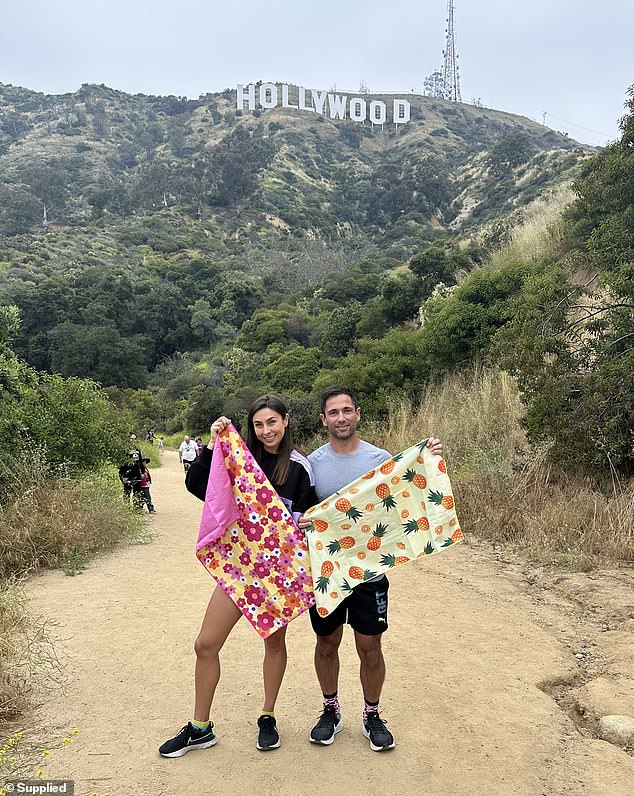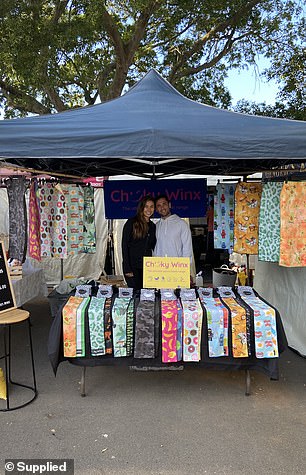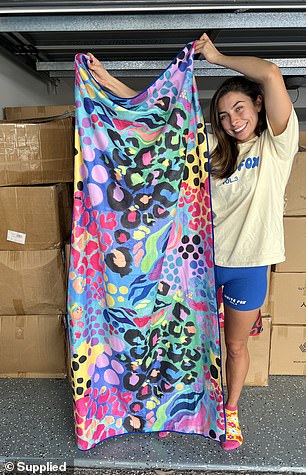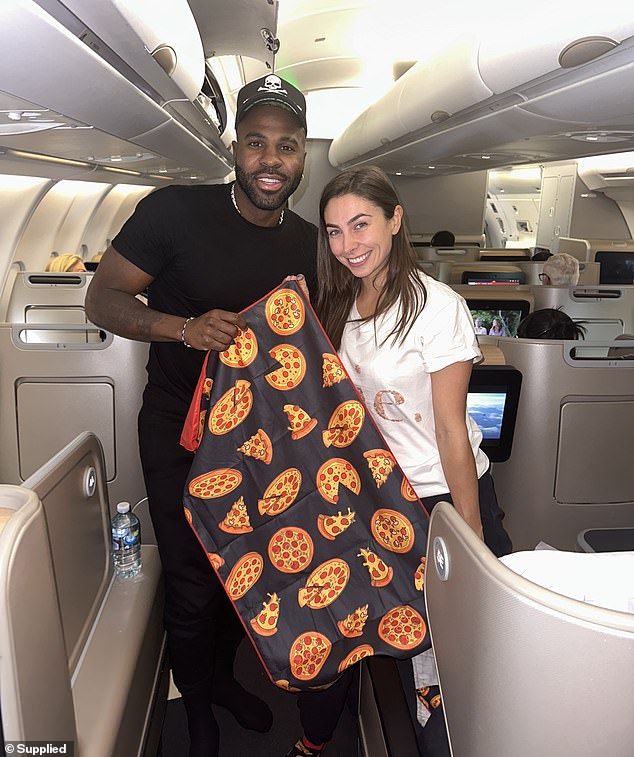Couple behind gym towel empire Cheeky Winx reveal how they earned $300k in five days – and the huge mistake they’ll never make again
A young couple who started a business from their spare bedroom told how they raised $300,000 in just five days – and their huge $50,000 mistake.
Kalinda Salla, 29, and fiancé Joel Miranda, 34, started Cheeky Winx on March 7, 2021 after growing tired of “useless” gym towels.
The Brisbane couple invested $40,000 in savings to design funky gym towels, claiming the material is quick-drying, odor-free, ultra-absorbent and lightweight.
The company wasn’t an overnight success, but in the first two years they turned over a whopping $1 million dollars.
Their decision to expand into the US market cost them $50,000, but luckily they turned it around with $300,000 in sales on Black Friday.
Brisbane couple Kalinda Salla, 29, and fiance Joel Miranda, 34, started Cheeky Winx on March 7, 2021, selling funky gym towels

The decision to expand into the US market cost them $50,000, although they fortunately made $300,000 during Black Friday sales.
Speaking to FEMAIL, Kalinda said the brand has achieved significant milestones since 2021.
The business grew out of the couple’s spare bedroom, so they built a 1,500-square-foot warehouse for storage, embroidery and distribution functionality.
‘During the Christmas period we had eight employees helping us! During normal trading we usually only have two colleagues, but we are now looking for our first full-time employee,” she said.
Their Black Friday sale in November was a huge success thanks to strategic marketing that started eight weeks in advance.
The couple made sure they were ready and had stock to meet customer demands.
“We then gradually increased our advertising budget on Instagram and Facebook, in combination with a targeted email campaign to our VIP customers, which led to the remarkable $300,000 in sales in five days,” she said.

Their Black Friday sale in November was a huge success thanks to strategic marketing started eight weeks in advance


The brand started from humble beginnings, initially operating out of their guest room. They now offer over 30 types of gym towels
But their biggest mistake yet, the one that caused the “most stress,” happened after they decided to expand Cheeky Winx to America.
Kalinda explained that they had experienced some costly setbacks and did not predict how expensive the move would be.
“Unfortunately, setting up in the US came with unforeseen costs, resulting in a $50,000 setback, including fulfillment center fees, shipping costs between countries, customs fees and refunds for incorrect orders,” she said.
“This in itself was extremely expensive, but we didn’t take into account the costs associated with ordering enough stock for the Australian Christmas period.
“When we launched it was during the Australian winter and as a seasonal summer brand we were hit hard by the financial pressures.”
Kalinda explained that despite their best efforts, they had to borrow money to keep the company going, which led to the difficult decision to withdraw all shares from the US.

Over the Christmas period, the two founders worked themselves to the bone, working 100 hours a week for six weeks

Kalinda even met singer Jason Derulo during a flight (photo)
Despite the drawbacks, they have gained the support of a number of Australian athletes and sports teams, including former NRL and state player Scott Prince and Corey Parker.
They even met singer Jason Derulo on a flight.
Over the Christmas period, the two founders worked themselves to the bone, working 100 hours a week for six weeks.
If they were starting a business from scratch, there are a few things they would do differently – including hiring staff to avoid burnout and working to grow their Australian audience before venturing overseas.
“In retrospect, a more cautious approach to entering the US market would be beneficial,” Kalinda admitted.
“If we had first focused on consolidating our presence in Australia, expanding product lines and hiring earlier, we could have managed day-to-day operations efficiently.
“This approach would have prevented burnout, allowed us to promote organic growth, and facilitate collaboration with more merchants and artists across the country.”
